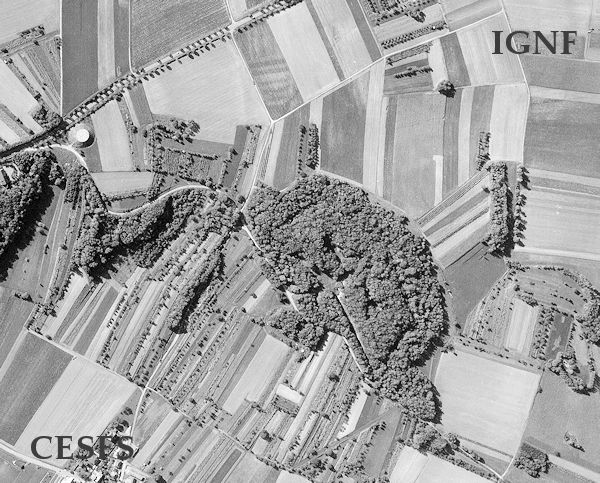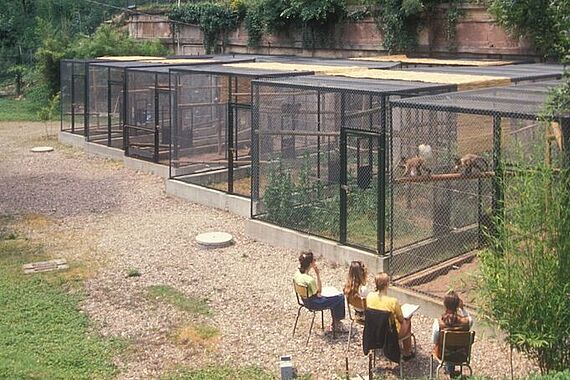In 1978, Nicolas Herrenschmidt, a Doctor in Primatology at the Louis-Pasteur University of Strasbourg (France), founded the Primatology Centre on the remaining foundations of Fort Foch, a fortress built on the outerskirts of Strasbourg by the Germans in 1870.
The site, one of a kind in Europe and spanning over 7 hectares of wooded land, welcomed its first animals for use in behavioural research: a group of Sulawesi and Java Macaques. The remoteness of the available spaces provided an ideal setting for the study of primates in semi-free-ranging conditions, leading to new insight into the behaviour of such social groups.




